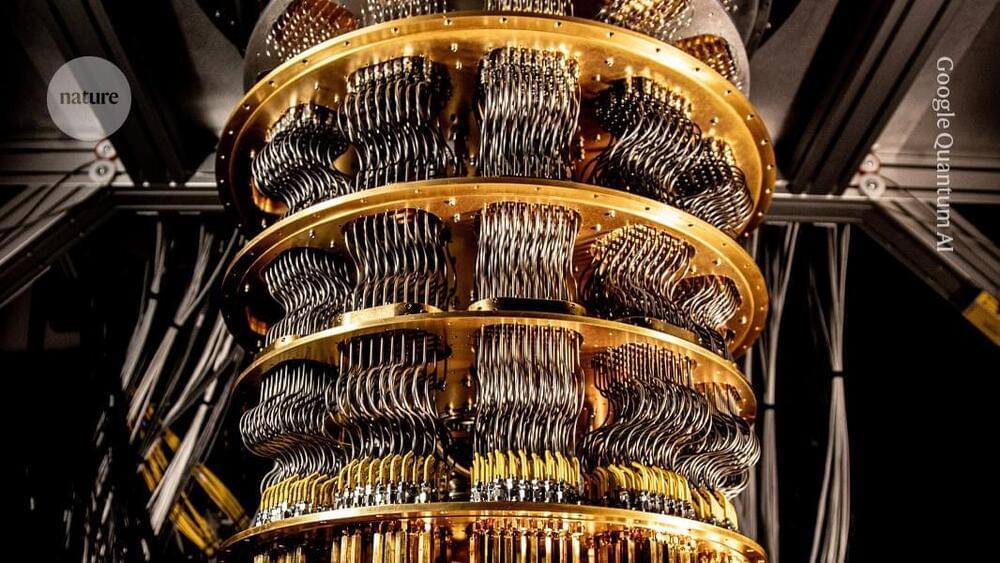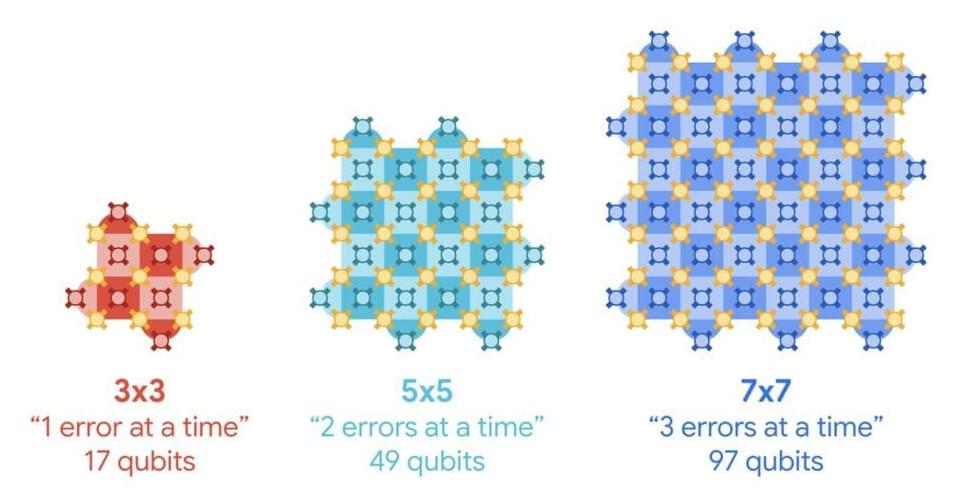In a first, researchers have shown that adding more “qubits” to a quantum computer can make it more resilient. It’s an essential step on the long road to practical applications.



Researchers at Google have built a chip that has enabled them to demonstrate the first ‘below threshold’ quantum calculations — a key milestone in the quest to build quantum computers that are accurate enough to be useful.
The experiment, described on 9 December in Nature1, shows that with the right error-correction techniques, quantum computers can perform calculations with increasing accuracy as they are scaled up — with the rate of this improvement exceeding a crucial threshold. Current quantum computers are too small and too error-prone for most commercial or scientific applications.

Avalo, a crop development company based in North Carolina, is using machine learning models to accelerate the creation of new and resilient crop varieties.
The traditional way to select for favorable traits in crops is to identify individual plants that exhibit the trait – such as drought resistance – and use those plants to pollinate others, before planting those seeds in fields to see how they perform. But that process requires growing a plant through its entire life cycle to see the result, which can take many years.
Avalo uses an algorithm to identify the genetic basis of complex traits like drought, or pest resistance in hundreds of crop varieties. Plants are cross-pollinated in the conventional way, but the algorithm can predict the performance of a seed without needing to grow it – speeding up the process by as much as 70%, according to Avalo chief technology officer Mariano Alvarez.


That’s our question.
When we ask whether AI can become possessed by a spirit sent by Satan, we might beflummox our minds with an unnecessary detour. That detour is puzzlement over the relationship between disembodied spirits and machine intelligence. Such mental machinations are just as “creepy” as personifying a chatbot or robot. And they are oblique. They fail to provide a path toward understanding the presence of evil.

Northwestern Medicine investigators have discovered new molecular mechanisms underlying DNA repair dysregulation in prostate cancer cells, findings that may inform the development of new targeted therapies for patients that have become resistant to standard treatments, according to a recent study published in Science Advances.
Qi Cao, Ph.D., the Anthony J. Schaeffer, MD, Professor of Urology, was senior author of the study.
DNA damage is a natural occurrence in cells caused by various intercellular and external stressors. However, if left unrepaired, this damage can lead to genetic mutations that can lead to the development of different diseases, including cancer.
Since 2018 the Zwicky Transient Facility, an international astronomical collaboration based at the Palomar Observatory in California, has scanned the entire sky every two to three nights. As part of this mission, the ZTF’s Bright Transient Survey has been counting and cataloging supernovae—flashes of light in the sky that are the telltale signs of stars dying in spectacular explosions.
On Dec. 4, ZTF researchers—including astronomers at the University of Washington—announced that they have identified more than 10,000 of these stellar events, the largest number ever identified by an astronomical survey.
“There are trillions of stars in the universe, and about every second, one of them explodes,” said Christoffer Fremling, an astronomer at Caltech who leads the Bright Transient Survey. “ZTF detects hundreds of these explosions per night and a handful are then confirmed as supernovae. Systematically doing this for seven years has led to the most complete record of confirmed supernovae to date.”

Google Quantum AI announced that it is moving past the Sycamore era and taking another leap down its roadmap with the introduction of the 105-qubit Willow, a new quantum chip that has achieved a milestone in computational power and error correction, marking a major step toward large-scale, commercially viable quantum computing.
The team, which published their findings in Nature, is also eyeing a quantum device that overcomes the limitations of errors and offers real-world solutions to tough problems, the ultimate destination as they progress along their roadmap.
“The mission of the Google quantum AI team is to build quantum computing for otherwise unsolvable problems,” said Hartmut Neven, a vice president of engineering at Google and founder and manager of the Quantum Artificial Intelligence lab, at a recent roundtable about the new milestone.” So what problems do we have in mind? The first applications will be modeling and understanding systems where quantum effects are important. So that’s the case for common drug discovery, understanding and designing nuclear fusion reactors, bringing down the enormous energy costs of fertilizer production. But it then extends to multiple other areas, such as quantum machine learning.”

